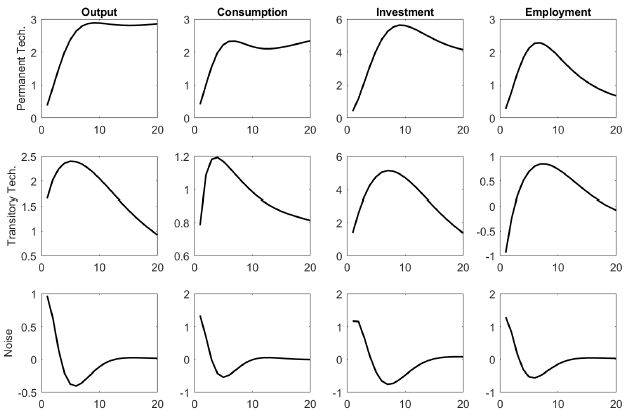News and Noise in the Great Depression
Abstract
The empirical work of L’Huillier and Yoo (2017) finds that bad news unrelated to fundamentals had a prominent role in the Great Depression. Their results suggest that a very important element is missing in the existing analyses of the recession, providing a potential solution to the Great Depression puzzle. After reviewing the mechanisms through which news can affect the economy, we test whether noise shocks, once embedded in a general equilibrium framework, are relevant sources of variation in the period of the Great Depression. In particular, we estimate a medium-scale DSGE model with a signal extraction on productivity as in Blanchard et al. (2013). We find that noise shocks, while significant, are not important sources of variation in the Great Depression period, particularly because of their low persistence. Additionally, we claim that the exploratory results of L’Huillier and Yoo (2017) are mainly driven by the failure of taking into account other sources of disturbances.
